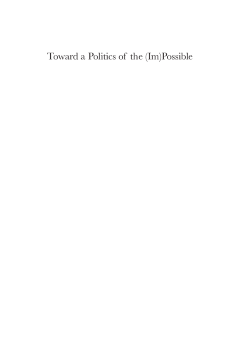
Additional Information
Book Details
Abstract
This book works at the intersection of two related yet different fields. One is the heterogeneous feminist effort to question universal forms of knowing. The expression 'embodiment of knowledge' deploys the notions of time (as history), space (as location) and politics (as partiality of perspective or standpoint) to interrogate the purported universality of knowing. Embodiment is one important concept through which feminist philosophies try to perceive the attempt of questioning the universal. The second field follows from mind/body dichotomy. Embodiment is traditionally understood to involve an act of simple inversion – valorizing the (material) body in place of the mind. However, if meanings are seen to produce the body as 'a system of signification', embodiment gets reduced to another form of the significatory mechanism. The book explored the dynamics of the production of the 'body' with a focus on the 'others' (death, sexual and colonial differences) that fracture and define the notion of the body. An ethical responsibility to the 'others' consonant with this ontologically differentiated body distinguishes this notion of embodiment from standard versions of 'third world feminism'. The development of this notion requires an elaboration of the ways in which power and scientific rationality work (epistemically) in a postcolonial setting. Finally, the book presents the notion of embodied knowledges as inseparable from a deconstructive politics of the (im)possible.
‘This philosophically nuanced work examines discourse on “women’s question” with profound theoretical rigour. […] Scholars interested in gender studies, philosophy, political science, logic, ethics and philosophy will find this theoretically dense book extremely educative in terms of ideological, conceptual and ethical concerns.’ —Vibhuti Patel, ‘Europe solidare sans frontières’
This book works at the intersection of two related yet different fields. One is the heterogeneous feminist effort to question universal forms of knowing. The second field follows from this conundrum: how does one think of the body when s/he speaks of embodiment? ‘Toward a Politics of the (Im)Possible’ engages the forefront of contemporary thought on the body, while remaining mindful of the requirements of a feminist approach.
'Anirban Das’s work is an important contribution to contemporary discussions on the post-colonial subject. It views some of the vital questions that confront the third world, especially its women, from a wide range of theoretical perspectives deeply analyzed and philosophically nuanced.' —Franson Manjali, Professor, Centre of Linguistics and English, Jawaharlal Nehru University
‘Expansive, rigorous and lucid, 'Toward a Politics of the (Im)Possible' offers a significant contribution to ongoing debates on the body, gender and identity. Through a series of meticulous and ambitious readings, the book brings together theoretical work and a sense of location in unique ways.’ —Udaya Kumar, Professor, Department of English, University of Delhi
Anirban Das holds a PhD in Philosophy from Jadavpur University, Kolkata, India. He is currently a Fellow in Cultural Studies at the Centre for Studies in Social Sciences, Calcutta, India.
